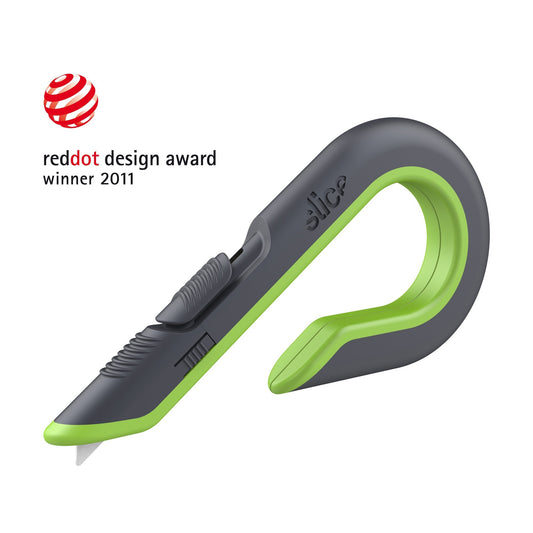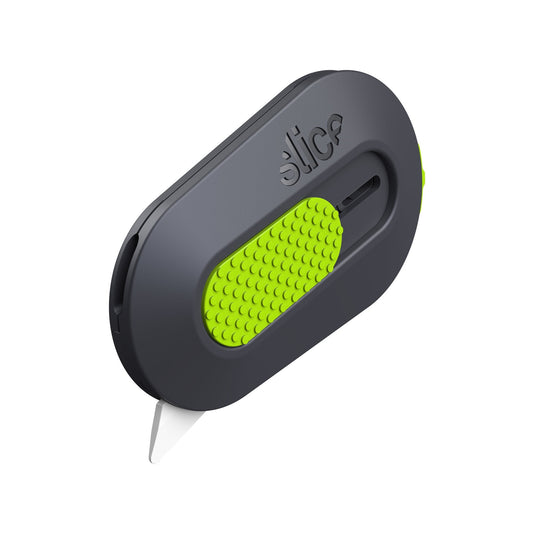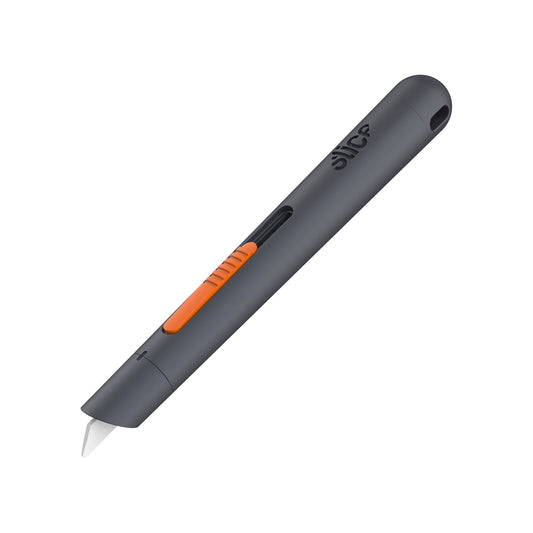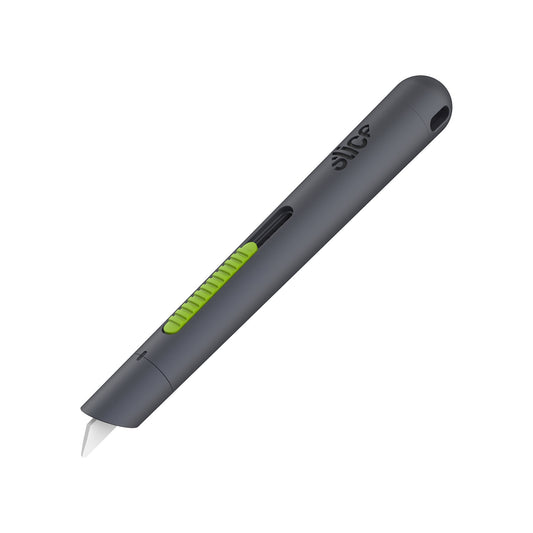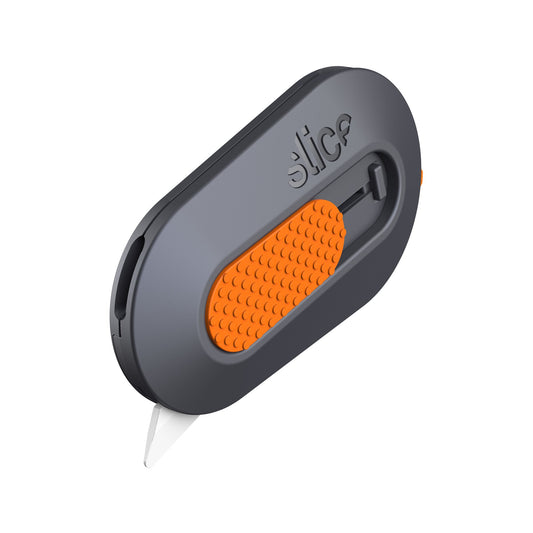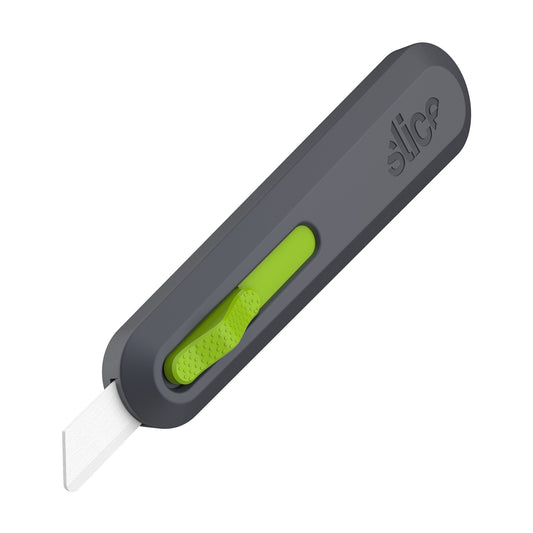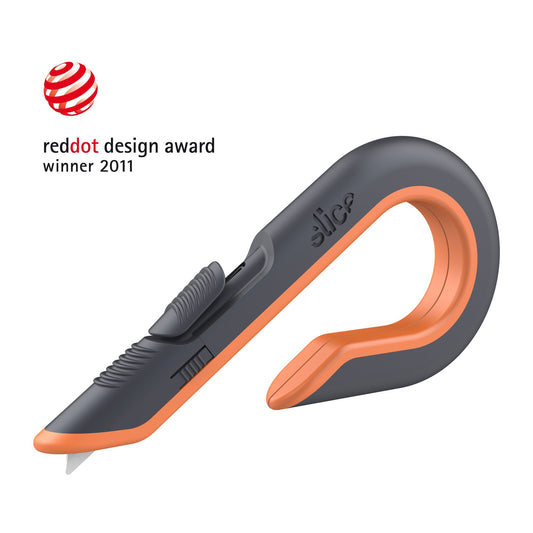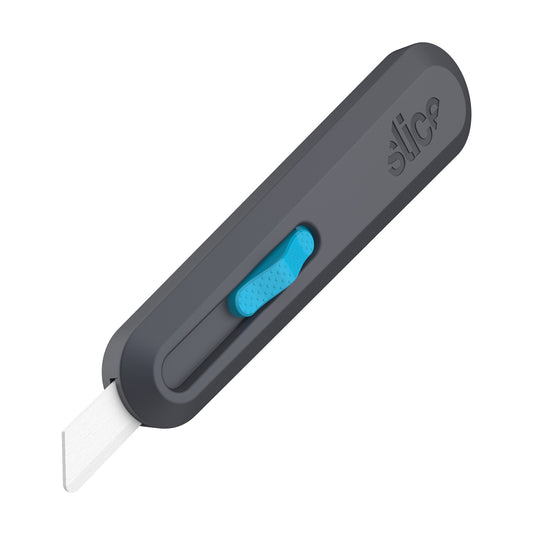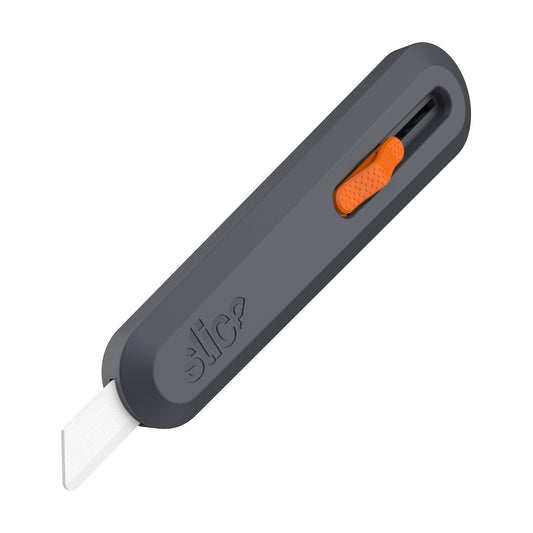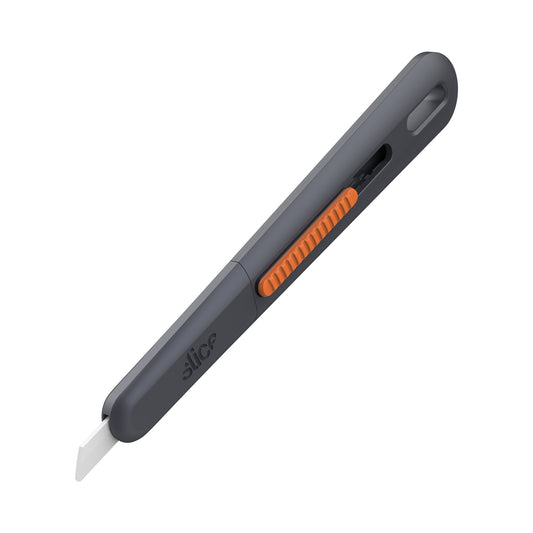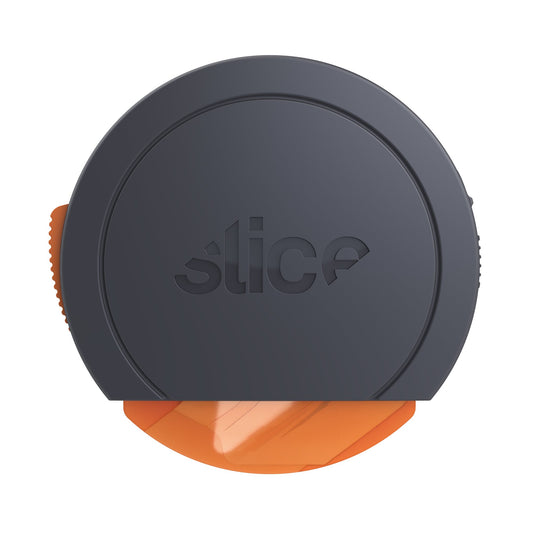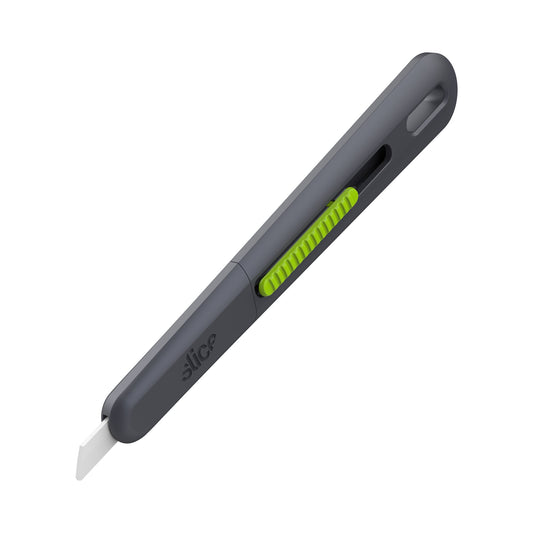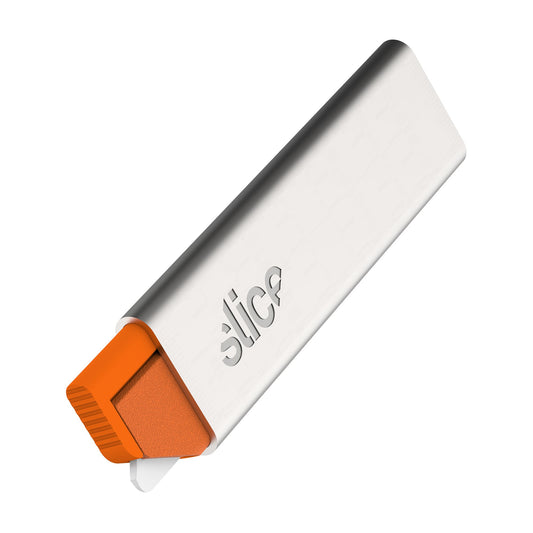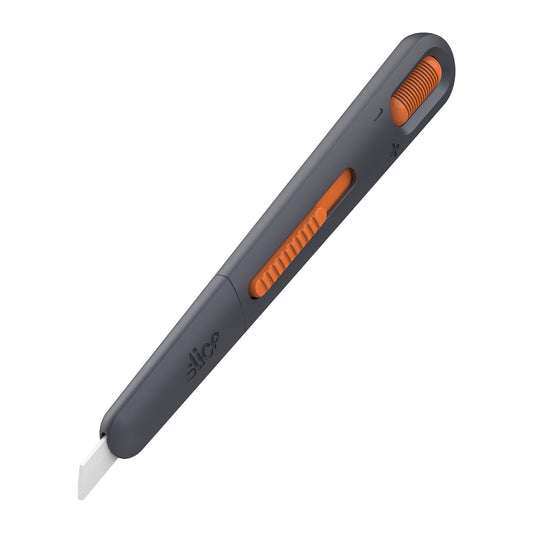-
Auto-Retractable Box Cutter
Regular price $38.12 AUDRegular priceUnit price per -
Auto-Retractable Mini Cutter
Regular price $18.31 AUDRegular priceUnit price per -
Manual Pen Cutter
Regular price $27.81 AUDRegular priceUnit price per -
Auto-Retractable Pen Cutter
Regular price $27.81 AUDRegular priceUnit price per -
Manual Mini Cutter
Regular price $18.31 AUDRegular priceUnit price per -
Auto-Retractable Utility Knife
Regular price $48.22 AUDRegular priceUnit price per -
Manual Box Cutter
Regular price $38.12 AUDRegular priceUnit price per -
Smart-Retracting Utility Knife
Regular price $49.71 AUDRegular priceUnit price per -
Manual Utility Knife
Regular price $48.22 AUDRegular priceUnit price per -
Manual Slim Pen Cutter
Regular price $33.66 AUDRegular priceUnit price per -
Super-Safe™ Carton Opener
Regular price $26.08 AUDRegular priceUnit price per -
Auto-Retractable Slim Cutter
Regular price $33.66 AUDRegular priceUnit price per -
Manual Carton Cutter
Regular price $17.39 AUDRegular priceUnit price per -
Adjustable Slim Pen Cutter
Regular price $29.91 AUDRegular priceUnit price per
Translation missing: en.accessibility.faq_content_title
What is a Box Cutter?
Box cutters are compact, handheld tools that cut thin materials such as corrugated packaging or plastic film. This kind of tool is common both in household and industrial use, and traditional cutters are a major cause of laceration injuries in the workplace. The best box cutter includes safety features, such as limited blade exposure, on-board retraction capability, and ergonomic handle design.
Tools like the Slice Manual Box Cutter have blades with multiple position settings. Choose a blade length that matches the material you're working with and retract the blade when your safety box cutter is not in use. In this way, the tool exposes just enough edge to make a clean cut, reducing the risk of injury. The Slice Auto-Retractable Box Cutter combines the blade with a spring-loaded mechanism that retracts the blade automatically when you let go of the slider button.
Choosing the right box opener depends on the material you’re cutting. Slice offers a wide variety of blade depths, so you can find the right tool for the job. While traditional box openers sport blades within the 1-inch range, with Slice you’ll find multiple options at your disposal. In addition, our ergonomic handle ensures absolute control over your tool while you cut.
Tools like the Slice Manual Box Cutter have blades with multiple position settings. Choose a blade length that matches the material you're working with and retract the blade when your safety box cutter is not in use. In this way, the tool exposes just enough edge to make a clean cut, reducing the risk of injury. The Slice Auto-Retractable Box Cutter combines the blade with a spring-loaded mechanism that retracts the blade automatically when you let go of the slider button.
Choosing the right box opener depends on the material you’re cutting. Slice offers a wide variety of blade depths, so you can find the right tool for the job. While traditional box openers sport blades within the 1-inch range, with Slice you’ll find multiple options at your disposal. In addition, our ergonomic handle ensures absolute control over your tool while you cut.
What Type of Blades Do Slice Box Cutters Have?
Our safety cutters use double-ended, Slice safety blades that last 11 times longer than steel blades. We use zirconium oxide, an extremely hard material. The resulting slow-to-dull edge requires fewer blade changes, reducing long-term replacement costs. Slice's proprietary manufacturing process creates an edge that cuts effectively while producing finger-friendly® blades that are safe to the touch.
Our ceramic safety blades are chemically inert and won't rust. They're also non-conductive and anti-magnetic. Slice box cutters come with reversible, rounded-tip blades that improve box cutter safety. Replacement box cutter blades are available with either rounded or pointed tips. Slice ceramic box cutters feature tool-free handle designs that simplify blade replacement.
Our ceramic safety blades are chemically inert and won't rust. They're also non-conductive and anti-magnetic. Slice box cutters come with reversible, rounded-tip blades that improve box cutter safety. Replacement box cutter blades are available with either rounded or pointed tips. Slice ceramic box cutters feature tool-free handle designs that simplify blade replacement.
What Box Cutter Handle Options Are Available?
Slice tools feature glass-filled nylon handles that are durable and easy to grip. Slice box cutters have an award-winning J-hook handle design that protects the user from hazards like staples and from repetitive strain injuries. When not in use, our safety box cutter knife's J-hook handle allows you to hang the tool with the blade outside your pocket.
All of our box cutter knives have ambidextrous handles and controls, as do the Slice Manual Pen Cutter and Slice Auto-Retractable Pen Cutter. Most have a lanyard hole in the handle that helps prevent loss. Slice pen cutters and the Mini Cutter use the same Slice replacement blades as our box cutters and are compact enough to fit in a small drawer. In addition to a lanyard hole, the Slice Mini Cutter's handle is magnetized to keep the tool within easy reach.
The Mini box cutter is perfect if you’re looking for a small box cutter that’s compact but still packs a punch. Despite its size, our Mini Cutter provides just as precise a cut as its larger counterparts while still keeping your safety in mind. In fact, the Mini Cutter’s small size comes with an advantage - it fits perfectly in your hand and grants you more control over your cut.
Our Slice 10585 Manual Carton Cutter is another addition to our line of safety tools. This particular cutter is ideal for boxboard and thin corrugated material. The blade exposure is just enough so you can cut through cardboard without damaging the contents within your package. There’s also a metal sheath you can slide to cover and uncover the blade.
All of our box cutter knives have ambidextrous handles and controls, as do the Slice Manual Pen Cutter and Slice Auto-Retractable Pen Cutter. Most have a lanyard hole in the handle that helps prevent loss. Slice pen cutters and the Mini Cutter use the same Slice replacement blades as our box cutters and are compact enough to fit in a small drawer. In addition to a lanyard hole, the Slice Mini Cutter's handle is magnetized to keep the tool within easy reach.
The Mini box cutter is perfect if you’re looking for a small box cutter that’s compact but still packs a punch. Despite its size, our Mini Cutter provides just as precise a cut as its larger counterparts while still keeping your safety in mind. In fact, the Mini Cutter’s small size comes with an advantage - it fits perfectly in your hand and grants you more control over your cut.
Our Slice 10585 Manual Carton Cutter is another addition to our line of safety tools. This particular cutter is ideal for boxboard and thin corrugated material. The blade exposure is just enough so you can cut through cardboard without damaging the contents within your package. There’s also a metal sheath you can slide to cover and uncover the blade.
What About Utility Knives as Box Cutters?
While Slice ceramic utility knives and box cutters share many safety features, they do have different blades and handle configurations. When working with a limited selection of thinner materials, buy a box cutter, pen cutter, carton cutter, or a Slice Mini Cutter. Tools like the Slice Auto-Retractable Utility Knife have longer blades for making deeper cuts. Cutting tasks like triple-walled corrugated may benefit from the longer reach of a Manual Utility Knife blade. Once you understand when and how to use a box cutter instead of a utility knife, you'll enjoy the added safety these tools offer.
What Does Auto-Retractable Mean?
Tools with auto retraction require pressure on the slider to keep the cutting edge extended. If the user releases the button, the blade automatically retracts into the handle. This design enhances box cutter safety because the blade stays hidden when it's not in use. Products like the Slice Smart-Retracting Utility Knife take cutting safety a step further than standard retractable box cutters. A pull slider provides a natural grip that reduces hand fatigue, and the blade automatically retracts into the safety cutter handle when it loses contact with the material you're cutting, even if you're still holding the slider. Health and safety officers will appreciate this added layer of safety to reduce workplace injuries.
What Is a Finger-Friendly Blade Edge?
What do we mean when we say that Slice blades have finger-friendly edges? We mean that, while it’s certainly possible to cut skin with our blades, they’re specifically designed to be safer to touch. The difference is in the thickness of the blade and our proprietary grind angles. These are made possible by the extra-hard advanced ceramics we use to create our blades. Once the angles are ground (which is done by hand on diamond grinder wheels), the small cutting zone and thick blade have difficulty penetrating skin. For a more detailed explanation, complete with handy charts and graphs, see our FAQ: Why Are Slice Blades Safer Than Traditional Blades?
Slice safety box cutters are non-rusting, therefore they require less maintenance and, ultimately, fewer blade changes. Additionally, they’re non-reactive to acids and salts and they’re safe from -40 to 1600 degrees, Celsius.
Slice safety box cutters are non-rusting, therefore they require less maintenance and, ultimately, fewer blade changes. Additionally, they’re non-reactive to acids and salts and they’re safe from -40 to 1600 degrees, Celsius.
When Are Blade Users Most Likely to Get Injured?
Typical blades are overly sharp right out of the box because their relatively soft metal dulls quickly. This super sharp phase in a metal blade’s life cycle is dangerous while the user is installing a new blade. This is especially true since most people don’t wear gloves at this time because they need dexterity to insert the new blade properly. Most ceramic blade manufacturers mimic this unnecessary sharpness, passing the danger on to their users.
Conversely, when the blade is too dull (which happens quickly with metal blades), more force is required to make the cut. This increases the stored energy of the motion and decreases control, which can lead to the blade slipping and cutting areas of the body other than the hand.
Any blade handling or disposal is dangerous, especially with standard blades that require sharps box disposal even when they’re dull. Blades left lying around or unsheathed are also likely to cause accidents.
There’s no way to prevent all cutting accidents, but Slice’s finger-friendly grind addresses many possible hazards: our blades are less likely to penetrate skin, they last up to 11 times longer and require less handling, they start in a safe-but-effective sharpness zone and stay there for much longer, and they don’t require sharps box disposal. Find out more in our article, The Safety Blade: Everything You Need to Know.
Conversely, when the blade is too dull (which happens quickly with metal blades), more force is required to make the cut. This increases the stored energy of the motion and decreases control, which can lead to the blade slipping and cutting areas of the body other than the hand.
Any blade handling or disposal is dangerous, especially with standard blades that require sharps box disposal even when they’re dull. Blades left lying around or unsheathed are also likely to cause accidents.
There’s no way to prevent all cutting accidents, but Slice’s finger-friendly grind addresses many possible hazards: our blades are less likely to penetrate skin, they last up to 11 times longer and require less handling, they start in a safe-but-effective sharpness zone and stay there for much longer, and they don’t require sharps box disposal. Find out more in our article, The Safety Blade: Everything You Need to Know.
Box Cutter Safety
Box cutter safety training is of the utmost importance. It may seem self-explanatory, but knowing how to properly use a box cutter is crucial in the defense against potentially severe injuries. For example, workers should don protective gloves, cut away from themselves, and keep their bodies out of the cutting path. Maintaining focus and constantly checking blade conditions are also vital.
Preventing box cutter injuries shouldn’t be overlooked—rather, it should be considered on the same scale of importance as preventing all injuries in the workplace. Scissors cannot handle all cutting tasks, so sometimes using a box cutter is the only solution. Post visual reminders for your workers so that safety is always at the forefront of their minds.
In addition, knowing how to effectively use box cutter knives is crucial. These tools are considered a necessity for opening packages, slicing up cardboard, and trimming tough materials. They’re the perfect size, lightweight, and portable. Slice box cutter tools were primarily designed for safety, while still being effective and precise.
Preventing box cutter injuries shouldn’t be overlooked—rather, it should be considered on the same scale of importance as preventing all injuries in the workplace. Scissors cannot handle all cutting tasks, so sometimes using a box cutter is the only solution. Post visual reminders for your workers so that safety is always at the forefront of their minds.
In addition, knowing how to effectively use box cutter knives is crucial. These tools are considered a necessity for opening packages, slicing up cardboard, and trimming tough materials. They’re the perfect size, lightweight, and portable. Slice box cutter tools were primarily designed for safety, while still being effective and precise.

